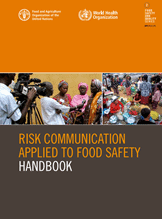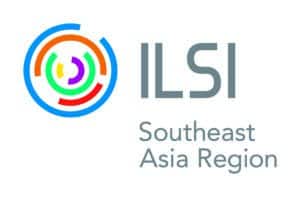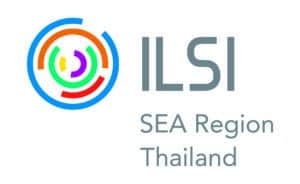ILSI Southeast Asia Region organizes over 50 events – workshops, symposia, scientific session and more – each year. Explore recent and past events here for agendas, speaker presentations, and summaries.
2019
ASEAN Regional Workshop on Food Safety Risk Communication
02/04/2019 – 03/04/2019
Bangkok, Thailand
Workshop on GFSP Food Chemical Risk Assessment
19/03/2019 – 21/03/2019
Singapore, Singapore
–
- shares about knowledge on the basics, Codex guidelines, and the key considerations of food safety risk communication
- introduce the new concept of food information communication
- highlight the importance to educate the public based on science
- emphasize the significance of partnership among the stakeholders
- discuss the challenges and opportunities in food safety risk communication among the ASEAN countries
Facilitators

Dr. Andrew Powell
Asia BioBusiness, Singapore
Biography
Dr. Masami Takeuchi
FAO RAP, Thailand
Biography
Mrs. Lorraine Haase
FSANZ, Australia
Biography
Dr. Junshi Chen
ILSI Focal Point in China, China
Biography
Dr. Lay Ching Chai
University of Malaya, Malaysia
Biography
Dr. Palangpon Kongsaeree
Mahidol University, Thailand
BiographyProgram
-
Apr 2, 2019
Open Seminar
- Introduction to Food Safety Risk Communication and Consumer Perception
- Codex Guidelines on Food Safety Risk Communication
- Key Considerations in Risk Communication
- New Concept in Food Information Communication
- Science Communication to the Public
- Public-Private Partnership in Risk Communication
-
Apr 2, 2019
Closed-door Workshop
- Effective Communication: Target Audiences, Approaches and Tools
- Managing Media during a Crisis
- Country Experience Sharing: Thailand
- Country Experience Sharing: Malaysia
-
Apr 3, 2019
Closed-door Workshop
- Stakeholders Engagement
- Strategy Formulation and Evaluation of Risk Communication
- Group activity : Case studies (African Swine Fever and Strawberry Tampering Issue)
Learn more about Food Safety Risk Communication
FAO and WHO have published Risk Communication Applied to Food Safety in 2016. Click on the picture to learn more.

Full report is available now. Contact ILSI SEA Region secretariat at ilsisea@ilsisea.org.sg.
Organizers

 [post_title] => ASEAN Regional Workshop on Food Safety Risk Communication
[post_excerpt] =>
[post_status] => publish
[comment_status] => closed
[ping_status] => closed
[post_password] =>
[post_name] => asean-regional-workshop-on-food-safety-risk-communication
[to_ping] =>
[pinged] =>
[post_modified] => 2019-07-17 05:46:25
[post_modified_gmt] => 2019-07-17 05:46:25
[post_content_filtered] =>
[post_parent] => 0
[guid] => http://ilsisea-region.org/?post_type=event&p=2599
[menu_order] => 0
[post_type] => event
[post_mime_type] =>
[comment_count] => 0
[filter] => raw
)
[1] => WP_Post Object
(
[ID] => 2844
[post_author] => 80
[post_date] => 2019-05-15 09:32:01
[post_date_gmt] => 2019-05-15 09:32:01
[post_content] =>
[post_title] => ASEAN Regional Workshop on Food Safety Risk Communication
[post_excerpt] =>
[post_status] => publish
[comment_status] => closed
[ping_status] => closed
[post_password] =>
[post_name] => asean-regional-workshop-on-food-safety-risk-communication
[to_ping] =>
[pinged] =>
[post_modified] => 2019-07-17 05:46:25
[post_modified_gmt] => 2019-07-17 05:46:25
[post_content_filtered] =>
[post_parent] => 0
[guid] => http://ilsisea-region.org/?post_type=event&p=2599
[menu_order] => 0
[post_type] => event
[post_mime_type] =>
[comment_count] => 0
[filter] => raw
)
[1] => WP_Post Object
(
[ID] => 2844
[post_author] => 80
[post_date] => 2019-05-15 09:32:01
[post_date_gmt] => 2019-05-15 09:32:01
[post_content] =>
Risk assessment is a fundamental aspect of risk management in food safety. Although the World Health Organization (WHO) has codified principles of risk assessment, there is a need to broaden understanding of the principles, and to teach practical data requirements and analysis procedures. To address these issues, the World Bank has commissioned learning modules on Food Chemical-Contaminant Risk Assessment under their Global Food Safety Partnership (GFSP). These modules have been written by experts in this field and have been explicitly designed to target the food safety risk assessors, to facilitate their general understanding of risk assessment and their detailed understanding of food chemical-contaminant risk assessment. The modules can contribute to the ability of the risk assessors to conduct risk assessments, and this skill is needed in the ASEAN region.

Dr. Paul Brent
Global Food and Chemical Risk Assessment and Risk Management Solutions, Australia
Read More
Emeritus Prof. Leon Brimer
University of Copenhagen, Denmark
Read More
Assistant Prof. Dr. Pharrunrat Tanaviyutpakdee
Mahidol Unversity
Read More
Assistant Prof. Dr. Puspo Edi Giriwono
Bogor Agricultural University, Indonesia
Read More
Prof. Samuel Godefroy
Laval University, Canada.
Read More-
March 19, 2019
Day 1
Introduction to GFSP Food Chemical Risk Assessment: General Concepts of Food Chemical Risk Assessment Food Chemical ToxicityExposure Assessment
-
March 20, 2019
Day 2
Case study: Exposure Assessment of Sweeteners in ThailandSpecific Aspects: Flavoring Substances, Food Contact MaterialsSpecific Aspects: Novel Foods and TechnologySafety Assessment of GM FoodsCase study: BaP Risk Probability in Indonesian Grilled Chicken: A Case Study in University Student Population and Extrapolation for the Whole Population
-
March 21, 2019
Day 3
Risk Assessment Framework -Chemical and Microbiological in U Laval

Background
Risk communication is a very important component in the food safety risk analysis framework. The main objective of food safety risk communication is to increase understanding among various stakeholders regarding the rationale behind the decisions taken to assess hazards and manage food safety risks and to help people make more informed judgments about the food safety hazards and risks they face in their lives. Therefore, developing an effective risk communication framework is not solely based on scientific knowledge, but also involves consumer perceptions, the relationship between consumers and risk communicators, as well as regulatory strategies on food safety.
This two-day workshop aims to
- shares about knowledge on the basics, Codex guidelines, and the key considerations of food safety risk communication
- introduce the new concept of food information communication
- highlight the importance to educate the public based on science
- emphasize the significance of partnership among the stakeholders
- discuss the challenges and opportunities in food safety risk communication among the ASEAN countries
Facilitators

Dr. Andrew Powell
Asia BioBusiness, Singapore
Biography
Dr. Masami Takeuchi
FAO RAP, Thailand
Biography
Mrs. Lorraine Haase
FSANZ, Australia
Biography
Dr. Junshi Chen
ILSI Focal Point in China, China
Biography
Dr. Lay Ching Chai
University of Malaya, Malaysia
Biography
Dr. Palangpon Kongsaeree
Mahidol University, Thailand
BiographyProgram
-
Apr 2, 2019
Open Seminar
- Introduction to Food Safety Risk Communication and Consumer Perception
- Codex Guidelines on Food Safety Risk Communication
- Key Considerations in Risk Communication
- New Concept in Food Information Communication
- Science Communication to the Public
- Public-Private Partnership in Risk Communication
-
Apr 2, 2019
Closed-door Workshop
- Effective Communication: Target Audiences, Approaches and Tools
- Managing Media during a Crisis
- Country Experience Sharing: Thailand
- Country Experience Sharing: Malaysia
-
Apr 3, 2019
Closed-door Workshop
- Stakeholders Engagement
- Strategy Formulation and Evaluation of Risk Communication
- Group activity : Case studies (African Swine Fever and Strawberry Tampering Issue)
Learn more about Food Safety Risk Communication
FAO and WHO have published Risk Communication Applied to Food Safety in 2016. Click on the picture to learn more.

Full report is available now. Contact ILSI SEA Region secretariat at ilsisea@ilsisea.org.sg.
Organizers

 [post_title] => ASEAN Regional Workshop on Food Safety Risk Communication
[post_excerpt] =>
[post_status] => publish
[comment_status] => closed
[ping_status] => closed
[post_password] =>
[post_name] => asean-regional-workshop-on-food-safety-risk-communication
[to_ping] =>
[pinged] =>
[post_modified] => 2019-07-17 05:46:25
[post_modified_gmt] => 2019-07-17 05:46:25
[post_content_filtered] =>
[post_parent] => 0
[guid] => http://ilsisea-region.org/?post_type=event&p=2599
[menu_order] => 0
[post_type] => event
[post_mime_type] =>
[comment_count] => 0
[filter] => raw
)
[comment_count] => 0
[current_comment] => -1
[found_posts] => 22
[max_num_pages] => 5
[max_num_comment_pages] => 0
[is_single] =>
[is_preview] =>
[is_page] =>
[is_archive] =>
[is_date] =>
[is_year] =>
[is_month] =>
[is_day] =>
[is_time] =>
[is_author] =>
[is_category] =>
[is_tag] =>
[is_tax] =>
[is_search] =>
[is_feed] =>
[is_comment_feed] =>
[is_trackback] =>
[is_home] => 1
[is_privacy_policy] =>
[is_404] =>
[is_embed] =>
[is_paged] => 1
[is_admin] =>
[is_attachment] =>
[is_singular] =>
[is_robots] =>
[is_favicon] =>
[is_posts_page] =>
[is_post_type_archive] =>
[query_vars_hash:WP_Query:private] => aadc854bcf5e9c423c26ce0302378574
[query_vars_changed:WP_Query:private] =>
[thumbnails_cached] =>
[allow_query_attachment_by_filename:protected] =>
[stopwords:WP_Query:private] =>
[compat_fields:WP_Query:private] => Array
(
[0] => query_vars_hash
[1] => query_vars_changed
)
[compat_methods:WP_Query:private] => Array
(
[0] => init_query_flags
[1] => parse_tax_query
)
)
[post_title] => ASEAN Regional Workshop on Food Safety Risk Communication
[post_excerpt] =>
[post_status] => publish
[comment_status] => closed
[ping_status] => closed
[post_password] =>
[post_name] => asean-regional-workshop-on-food-safety-risk-communication
[to_ping] =>
[pinged] =>
[post_modified] => 2019-07-17 05:46:25
[post_modified_gmt] => 2019-07-17 05:46:25
[post_content_filtered] =>
[post_parent] => 0
[guid] => http://ilsisea-region.org/?post_type=event&p=2599
[menu_order] => 0
[post_type] => event
[post_mime_type] =>
[comment_count] => 0
[filter] => raw
)
[comment_count] => 0
[current_comment] => -1
[found_posts] => 22
[max_num_pages] => 5
[max_num_comment_pages] => 0
[is_single] =>
[is_preview] =>
[is_page] =>
[is_archive] =>
[is_date] =>
[is_year] =>
[is_month] =>
[is_day] =>
[is_time] =>
[is_author] =>
[is_category] =>
[is_tag] =>
[is_tax] =>
[is_search] =>
[is_feed] =>
[is_comment_feed] =>
[is_trackback] =>
[is_home] => 1
[is_privacy_policy] =>
[is_404] =>
[is_embed] =>
[is_paged] => 1
[is_admin] =>
[is_attachment] =>
[is_singular] =>
[is_robots] =>
[is_favicon] =>
[is_posts_page] =>
[is_post_type_archive] =>
[query_vars_hash:WP_Query:private] => aadc854bcf5e9c423c26ce0302378574
[query_vars_changed:WP_Query:private] =>
[thumbnails_cached] =>
[allow_query_attachment_by_filename:protected] =>
[stopwords:WP_Query:private] =>
[compat_fields:WP_Query:private] => Array
(
[0] => query_vars_hash
[1] => query_vars_changed
)
[compat_methods:WP_Query:private] => Array
(
[0] => init_query_flags
[1] => parse_tax_query
)
)
